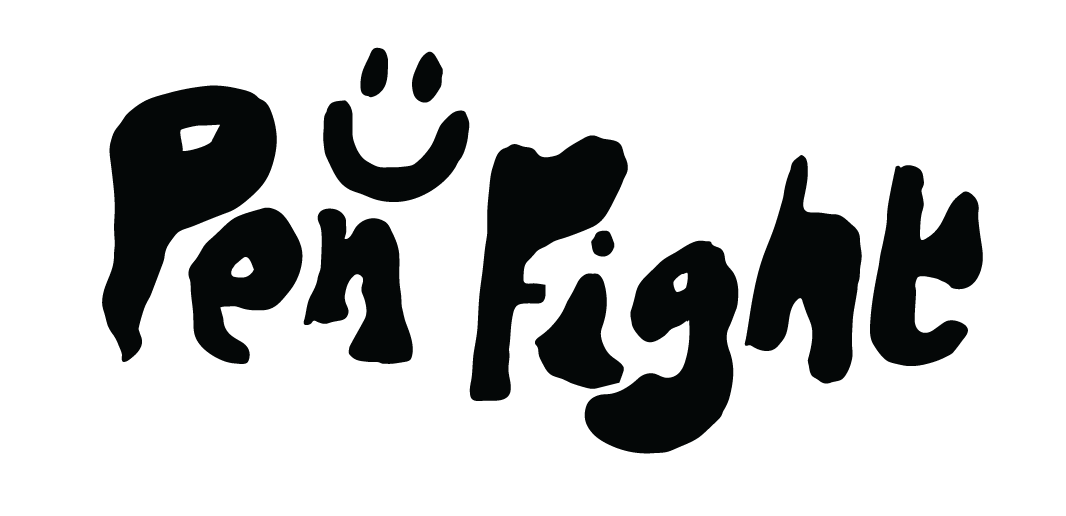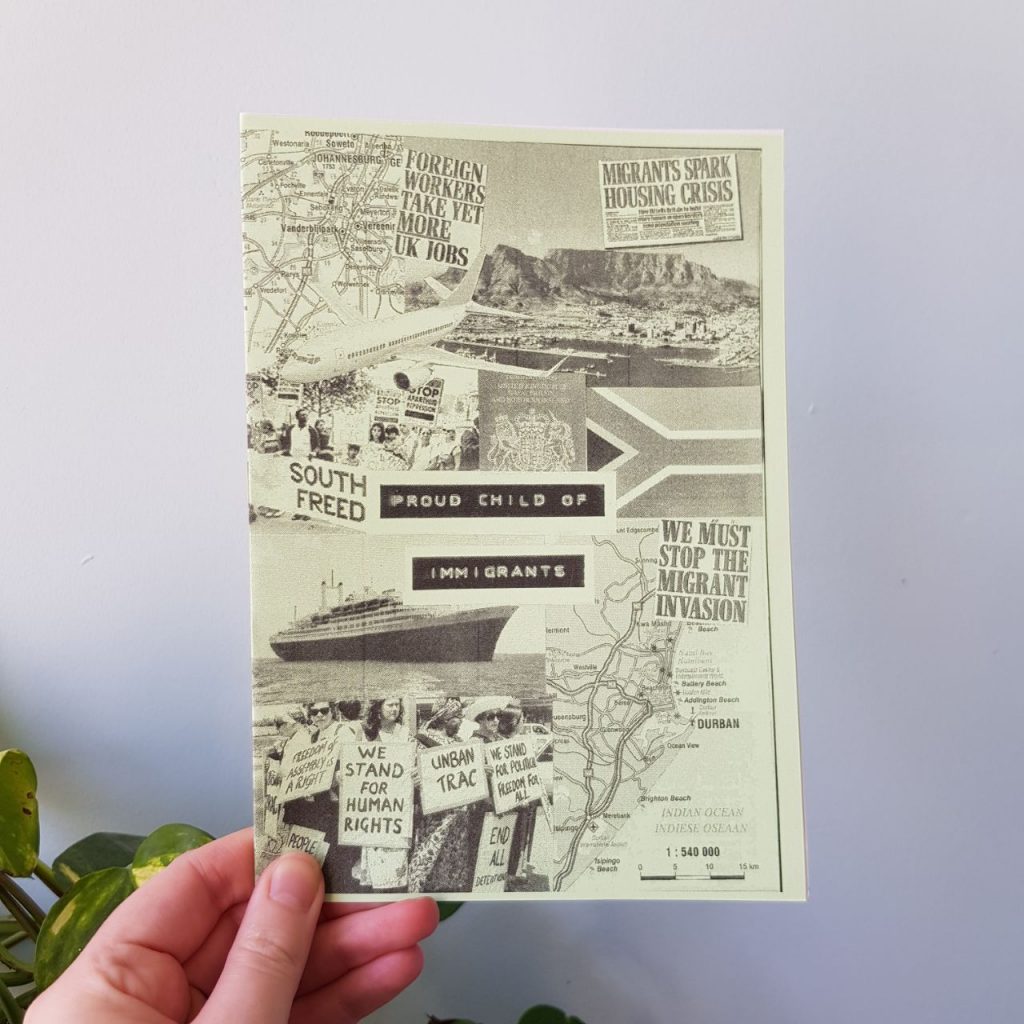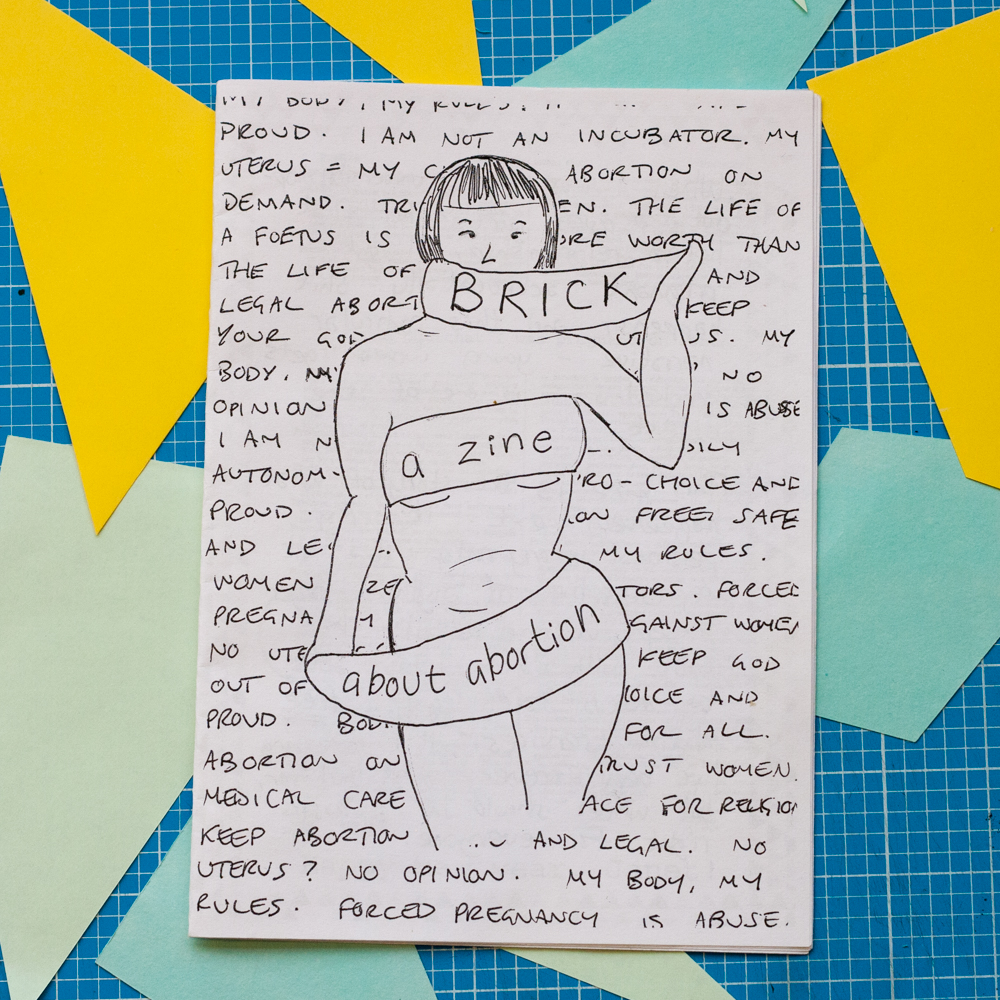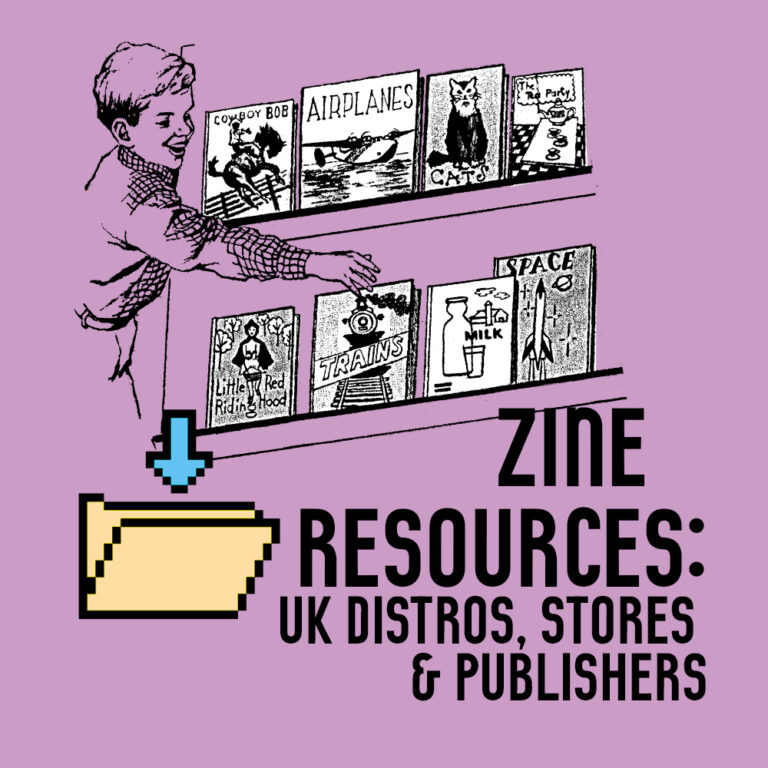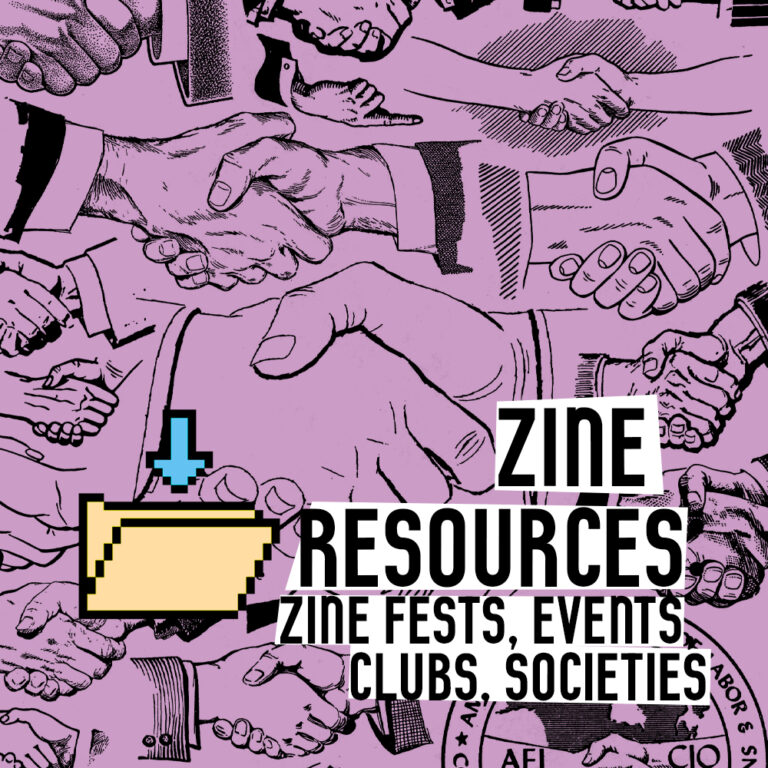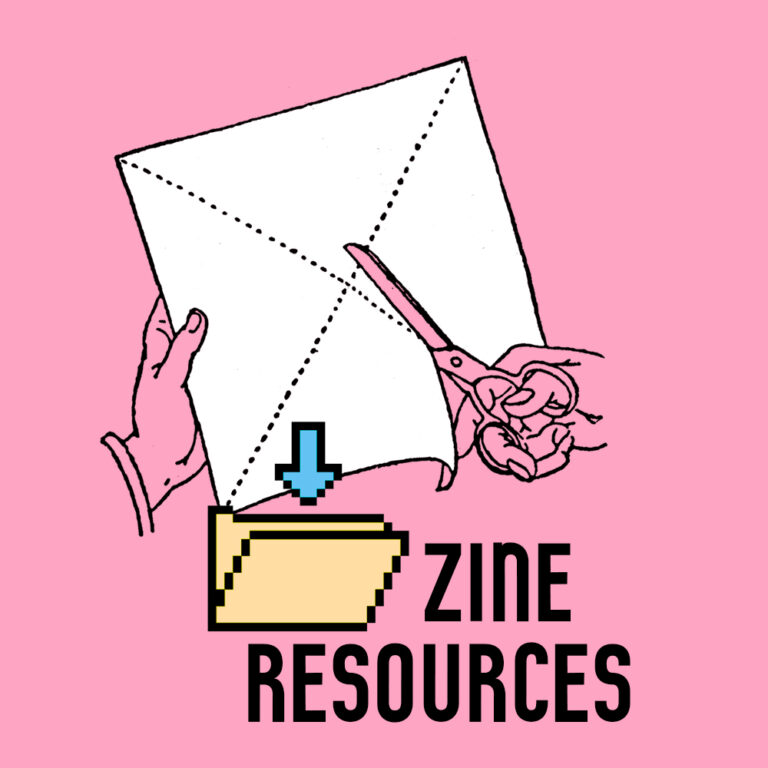This International Zine Month I’ve been interviewing a series of zinemakers so we can get to know them and their zine making process a bit better! The first one is from the excellent Janet of [too many zines to mention!]
Hey Janet! Happy International Zine Month! How is life going at the moment? For people who don’t know you, can you tell me a bit about yourself?
Hey Vicky! I’m currently living in Leicester – I was in the process of moving back home to West Yorkshire when Covid hit and everything got delayed. I’ve been making zines for 25 years (or rather, I started making zines 25 years ago and then had quite a long break in the middle before returning to them about 8 years ago). Outside of zines, I like books, cats, solitude and sunshine, so I’ve been managing pretty well with lockdown all things considered.
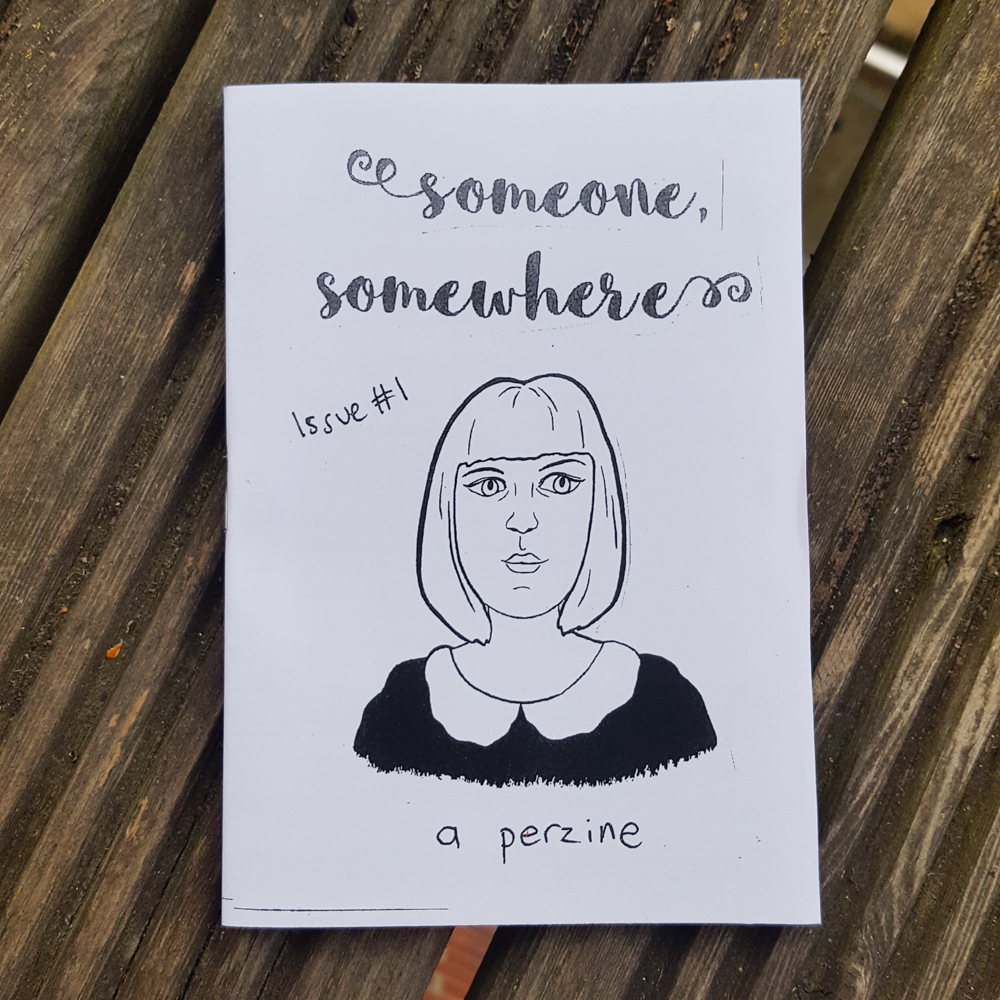
How did you originally get into zines? I remember you mentioning to me once that you made a lot of zines back in the ’90s, can you tell me a bit more about those? And what inspired you to get back into zine making? Do you feel zine culture has shifted much?
When I was 15/16 I got very into alternative and indie music, which made me even more of a weirdo at my Bradford comprehensive. Wanting to not feel so isolated, I started sending off for the music fanzines I saw advertised in the back of NME and Melody Maker and once I’d read a few, I thought “I could do this!” And so I did. It’s quite weird to think of how self-confident I was capable of being back then: I’d somehow found out that if you wrote music zines, you could get free records and gig tickets so I started phoning up the PR departments of record companies and asking to be put onto guest lists… and it worked!
I was this strange teenager in Yorkshire doing her A Levels and with maybe 30 people buying each issue of my fanzine, but London music PRs would be like “yeah of course you can go and see Ash for free, fancy interviewing them too?” It was every teenage music nerd’s dream, and I pretty much stopped working on my A Levels and spent two years going to gigs, meeting bands, and then writing about it.
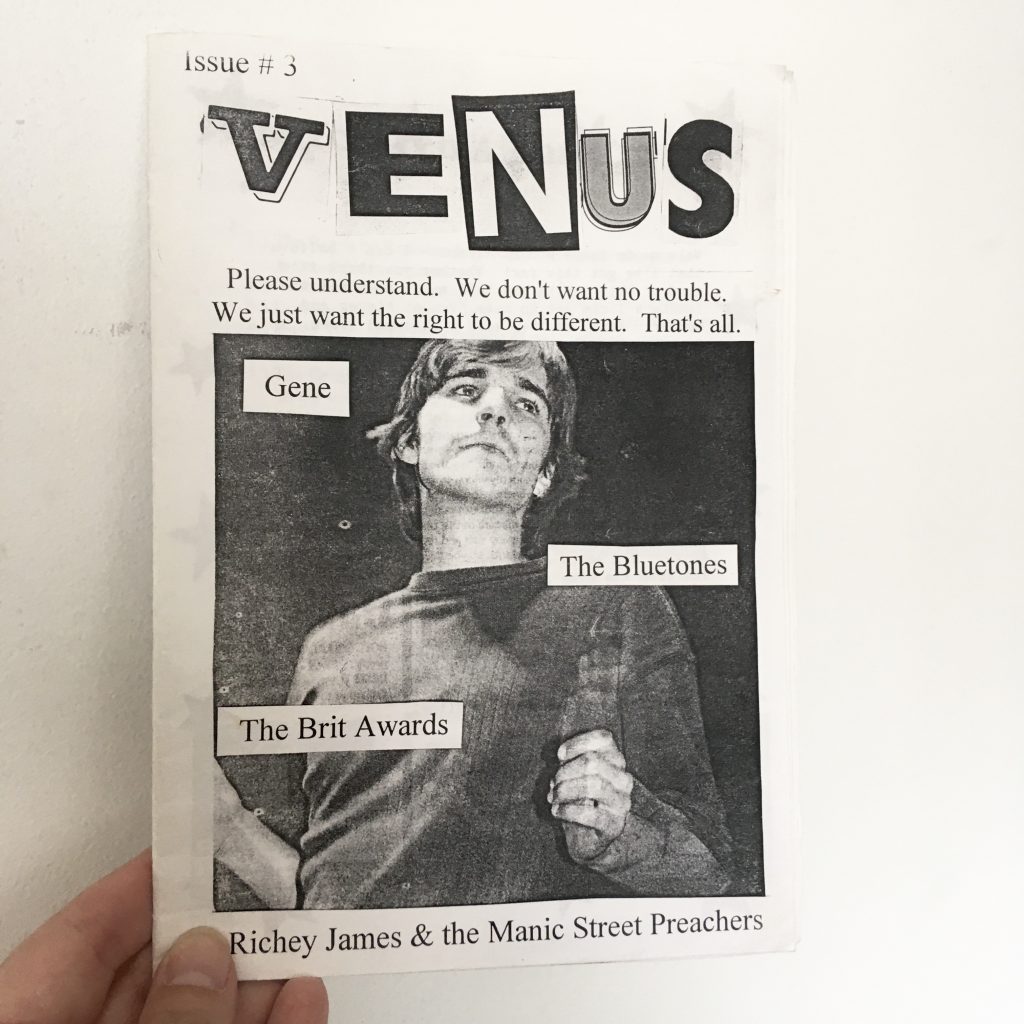
And in the meantime I also started a perzine, which in retrospect was mostly standard teenage whining about no-one understanding me. It was all done by post in those days (“those days” ha I sound like a right grandma!) so I’d put an ad in the music press or on Ceefax and then people would send their pound coin and self addressed envelope, and I’d send them a zine back. And quite often they’d end up writing back and you’d become pen pals; I met so many people that way who ended up becoming friends.
Then I went to university and gradually stopped making zines for various reasons, and it was only in my early 30s that I returned to them. I’d become friends with Laura through blogging and she’d made zines in the past and wanted to get back into it, and so the two of us were sort of “ok let’s do this” and planned a trip to Sheffield Zine Fest. We came home loaded down with zines and fired up with inspiration, and the following year we went back to table and sell the five zines we’d made between us in the intervening year.
One of the biggest shifts in zine culture is how the internet enables the promotion and distribution of zines, and also makes organising zine fairs easier. Maybe there were zine fairs happening in 1994 but I just didn’t know about them. But now that’s a central part of my zine making; going to zine fairs and meeting other zinesters. And perhaps it’s because I mostly made music fanzines in the 90s, but the scene seems much less male-oriented now. In the 90s it was pretty evenly split but now it’s predominately women and non-binary people who you see selling at zine fairs.
Your zines are often about very personal topics (your experiences with abortion, being childfree, being a child of immigrants and your family’s history). Are you generally an open book day-to-day or are zines a kind of outlet for that?
I am not at ALL an open book usually! While I’m happy to be open about having an abortion, for example (and in fact think it’s really important to do so to help normalise it), I won’t generally talk about the messy feelings that go along with it. Even with my partner or my best friends I can be quite closed off about my emotions, so I do think zines are an outlet for working through complicated feelings about important events or elements of my life.
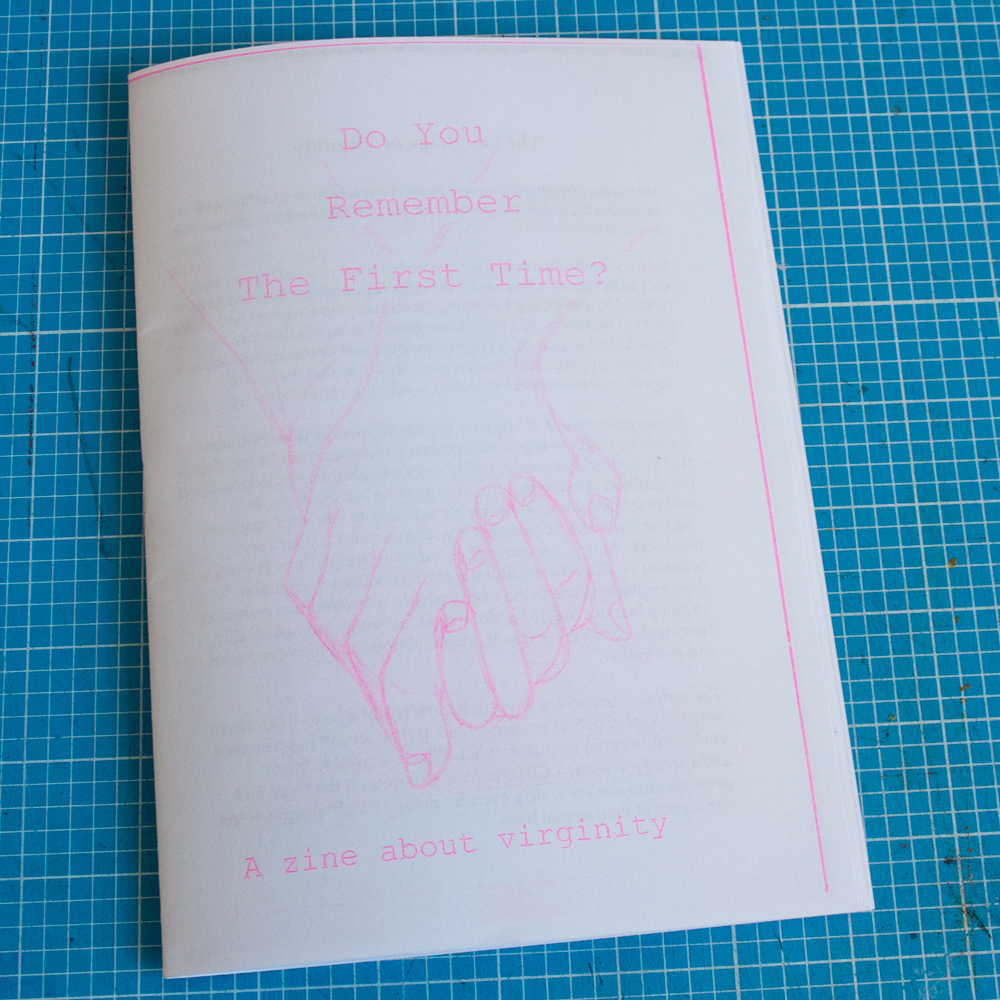
You’ve also made a few zines collaboratively (like Mixtape and Do You Remember the First Time?) – how does that experience differ for you from making a zine on your own? I really love Do You Remember the First Time? in particular because the stories of people having sex for the first time vary so much, what inspired you to put that together?
Making collaborative zines is not my favourite to be honest! I was that kid at school who hated group projects because I like to be in complete control, so working with another editor, like I did on Mixtape, is a challenge for me. But totally worth it because the finished zine is different to anything I’d make on my own (which is sort of the point). I’ve learned that I manage better with a zine like Do You Remember The First Time, where it’s just me putting it together but taking submissions from other people.
And I’m glad you love Do You Remember The First Time, because of all the zines I’ve made it’s the one I’m most proud of. I can’t even remember what inspired me to start collecting stories, but I always had a really clear vision that I wanted the zine to examine the notion of ‘virginity loss’ and how problematic that is from a feminist perspective, from a queer perspective, from a trans perspective… It’s incredible that so many people were willing to tell their stories – the good, the bad, the funny, the sad – and I’m so pleased that it represents a variety of experiences and bodies and sexualities. It’s the zine that I always “talk up” at zine fairs because I love it so much!
You sent me your zines very early in my distroing days (and you were the very person whose work I printed other than my own too!) Before that we didn’t know each at all – and getting to know you online and chatting at zine fests since has been one of the highlights of starting Pen Fight for me. What have zines been like more generally for you as a means of connecting with new people?
Ah I didn’t know this! And yep totally agree that meeting you has been one of my highlights 🙂 For me, the people are what make the zine world so special. As a general rule zinesters are socially awkward, shy, anxious (and lots of us are neurodiverse too) so zine fairs, where we have to be sociable and talk to people about our work, are pretty weird. But I always have such a nice time catching up with old friends and meeting new ones. Most of my zine pals live in the north and so I’ve not always been able to hang out with people other than at fairs, so one of the things I’m most looking forward to about moving is being able to have IRL hangs with zine friends (well, that’s if Covid allows for it…).
Do you get people reaching out to you after reading your zines often? I can imagine it can be quite liberating for people to read your zines (in particular Brick which is a very open account of your getting an abortion). Is this something you had in mind when you were making Brick?
It’s something that happens a lot with Brick, but not with my other zines. I think because abortion is still considered a taboo subject, I’m often the first person outside of those closest to them that people will talk to about their abortion. It’s beyond humbling to have people contact me to say how much it resonated with their own experiences.
I always say that regardless of what I do in my career (I was a teacher, am now an education researcher), Brick will be the most important thing I’ve ever written because it seems to have that power to resonate with readers. Which was never my intention! I started working on it because the #shoutyourabortion movement was just beginning and I felt that talking more openly about abortion was important. And I also had some residual emotional stuff to work through, and making the zine helped with that.
The fact it’s so popular is really nice, and I get messages from people from all over the world about it. If I recall correctly, it was you who sent a copy to Mumbai Zine Library years ago, and Brick even ended up being featured in the Hindu Times newspaper!
Do you have any zine making tips you can share?
Oh gosh I feel like I’m such an amateur (which, I guess, is sort of the point of zines). I still make everything using cut and paste sheets of paper, rather than doing digital layouts! I think my biggest zine making tip is to just do it… don’t worry about it needing to look perfect or professional because to me that’s the antithesis of what zines should be.
Can you share some of your favourite things from the zine world?
Eek, I’m definitely going to miss someone important out! I need to shout out some of my favourite zine fests – Weirdo Zine Fest, @sheffieldzinefest, @nwzinefest, @lincolnzinefest, @overherezinefest and @bradfordzinefair and all of their organisers. Presses and distros I love include Synchronise Witches Press, Black Lodge Press, Easter Road Press, Vampire Hag Distro and, of course, Pen Fight Distro! I’m also really loving the output of Irregular Zines – the Sew Irregular zines are brilliant and their recent Five Things I Wish I’d Learnt At School About Empire is essential reading.
Do you have any projects you’re working on right now?
I’m currently seeking submissions for a zine about Joanna Newsom (to be called Heartbroken & Inchoate) so would love it if people got in touch with me about that at jbistheinitial@gmail.com
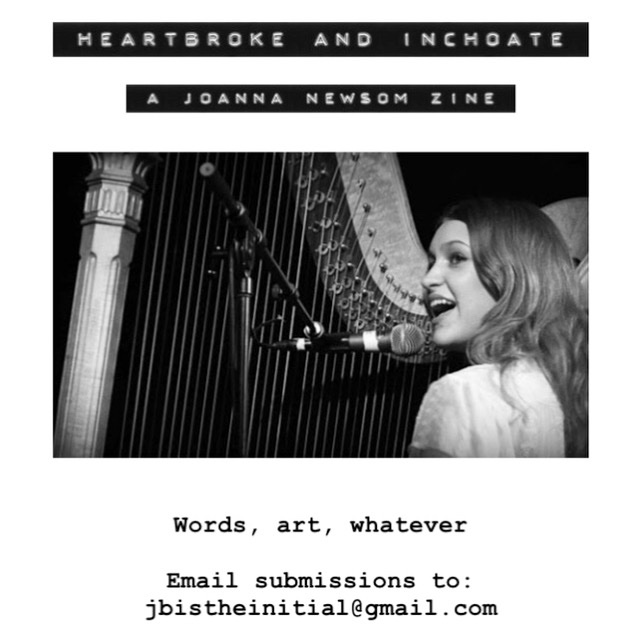
If you enjoyed this article please consider giving a tip via ko-fi so I provide more content like this ♥
